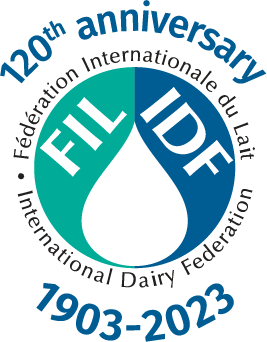

The US is joining the EU, Canada, Norway, Iceland and New Zealand in regulating the misuse of dairy terms. Consumers have the right to know when they are not buying real dairy products.
A plant-based substance is no alternative to animal milk in terms of its composition, texture, taste and nutritional value. A liquid plant-based product that bears a resemblance to milk can be referred to as a white beverage. It is erroneous to call it ‘milk’ and masquerading it as such. Technically, you can’t milk a nut.
The US Food and Drug Administration’s plan to ban the use of ‘milk’ from the labels of plant-based products will help to avoid confusion among consumers over the definition of the term. The FDA defines milk as ‘the lacteal secretion, practically free from colostrum , obtained by the complete milking of one or more healthy cows’.
Based on this definition it is clear that plant-based products do not fit into the category of ‘milk’. The move by the FDA is a step in the right direction in consumer protection following the ruling by the Court of Justice of the European Union in June 2017 prohibiting purely plant-based products from being marketed as ‘milk’, ‘cream’, ‘butter’, ‘cheese’ or ‘yoghurt’, which are reserved for animal products. The ruling also applies to products which have labels clarifying or describing its plant origins.
Plant-based products such as soy, almond, hazelnut, cashew, macadamia, oat, hemp, flax seed, quinoa, pea and rice are being labelled as ‘milk’ in certain parts of the world and marketed as alternatives to milk and dairy products to take advantage of the good nutritional reputation of dairy.
Codex has been clear since 1999 that: ‘In respect of a product which is not milk, a milk product or a composite milk product, no label, commercial document, publicity material or any form of point of sale presentation shall be used which claims, implies or suggests that the product is milk, a milk product or a composite milk product, or which refers to one or more of these products…If however the final product is intended to substitute milk, a milk product or composite milk product, dairy terms shall not be used.’
A clear differentiation between cow’s milk and plant-based products is important to enable consumers to make an informed choice for their dietary needs. Milk and plant-based products have different nutritional characteristics and therefore each of these products is not a substitute for the other. Some plant-based products contain protein, but the quality is not comparable to animal protein as they do not contain all the essential amino acids.
Dairy foods are not only excellent sources of calcium, vitamins B2 and B12, high quality protein, and carbohydrates in the form of lactose, but also contributes to the dietary intake of minerals such as iodine, magnesium, potassium and phosphorus. In addition to the unique nutrient content in dairy, evidence is showing that there is a synergistic effect between these which demonstrates their health benefits.
IDF welcomes the FDA’s announcement to issue guidelines on the use of terms like “milk” on both animal-derived and plant-based products in the interest of public health. FDA Commissioner Scott Gottlieb stated: “We intend to look at these differences in relation to potential public health consequences. We must better understand if consumers are being misled as a result of the way the term milk is being applied and making less informed choices as a result.”
The FDA is examining the issues because of cases where children who were fed non-dairy products developed severe forms of protein malnutrition and vitamin D deficiencies. The work of the FDA may create opportunities for other countries to adopt a similar approach. Enforcement of existing food regulations is necessary to avoid the selling and advertising of plant-based products as ‘milk’ which can mislead consumers. Regulatory compliance through legislation will help maintain these standards for product authenticity and to identify nutritional attributes so that consumers can make the right choice.
—————————————————–
1. Colostrum is a yellowish liquid containing antibodies that is secreted by the mammary gland of female mammals before and after the birth of their offspring, which helps to build up its immune system.
2. Codex Standard 206-1999 for the Use of Dairy Terms states.






